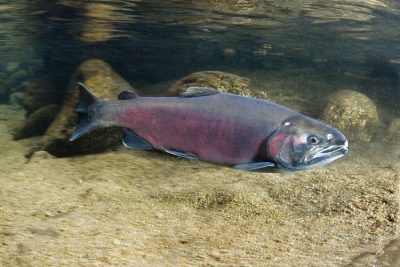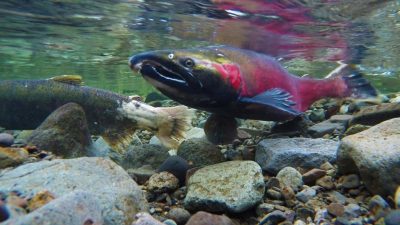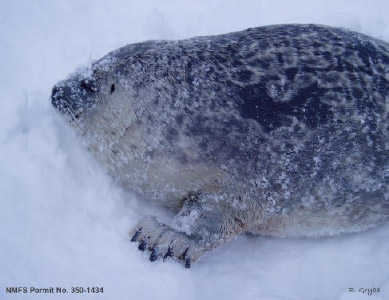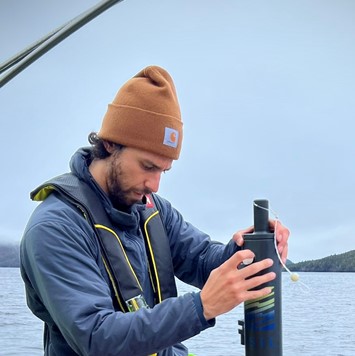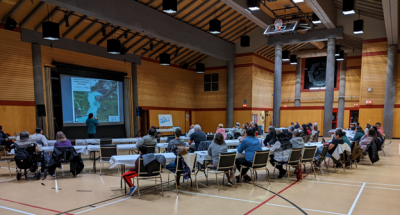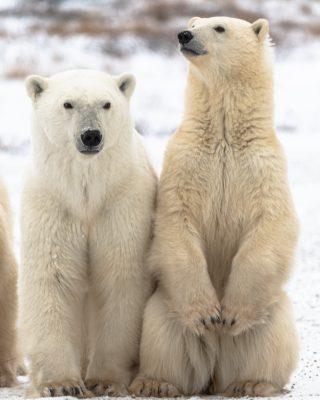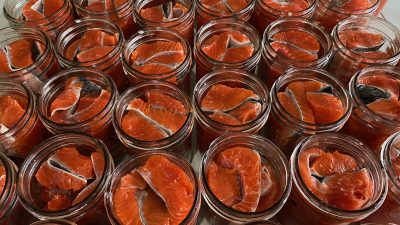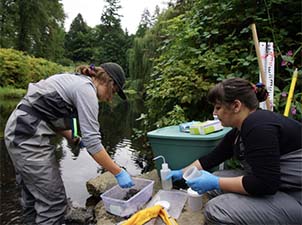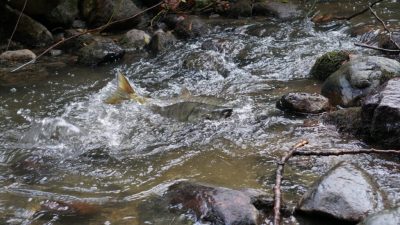Fish farm pathogen risks not properly addressed in federal government’s framework: Study
It identifies key flaws that led DFO to conclude that T. maritimum is unlikely to cause disease in wild fish, and that PRV is not an infectious disease agent – despite credible scientific evidence to the contrary.
Bridging the gaps to save British Columbia’s salmon
Indigenous stewardship needs to be recognized and supported, giving First Nations and local communities clear decision making authority.
The future of Pacific salmon: Community dialogues underscore the urgent need for collaborative restoration
Thirteen public meetings to gather knowledge from local and Indigenous communities in support of salmon rebuilding and recovery in the Pacific Northwest.
Indigenous Knowledge invaluable in identifying important habitats
Indigenous Knowledge can provide a holistic understanding of species’ habitat use given that it contains observations of multiple species across seasons and includes animals’ complex relationships with other species and habitats.
Student Profile: Alex (Alejandro) Schmill
Alejandro (Alex) Schmill is a first-year MSc student, co-supervised by Dr. William Cheung and Dr. Margot Hessing-Lewis of the Hakai Institute.
Partnering with Indigenous communities to improve research outcomes
Trust was essential in encouraging the community to discuss their relationships with spaces in Atl’ka7tsem and to use research findings during decision-making.
Increasing temperatures and salinity result in decreased ecosystem diversity, UBC study finds.
Ecosystems can be impacted and changed by a lot of different things, including human activities, stormwater runoff, contaminants, invasive species, and climate change
Indigenous data sovereignty and conservation in British Columbia
A collaborative study examined the concept of Indigenous data sovereignty in the context of salmon-bearing ecosystems in BC. The authors argue that successful conservation in the face of cumulative effects and climate change will require scientists to respect and incorporate Indigenous data sovereignty.
How to conduct scientific research with Indigenous Peoples and Lands in a good way
In a comment published in Nature Ecology & Evolution, authors outline four essential elements for conducting ecological research with and for Indigenous Peoples and Lands in a good way. In this Q&A, they discuss these elements and their importance for all scientific research.
Salmon bones confirm sustainable chum fishery for 2,500 years under Tsleil-Waututh Nation
New research confirms that Tsleil-Waututh Nation has consistently and sustainably fished for chum salmon for 1,200 years longer than the archaeological record had previously demonstrated
